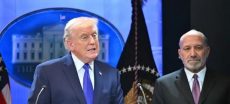Islamabad — Mubashir Akram, National Convenor of ACT Alliance Pakistan, has emphasized the need to safeguard Pakistan’s fiscal sovereignty by ensuring that tax policymaking remains anchored in national interests and grounded in local realities. Speaking at a media briefing in Islamabad, Akram expressed concern over the recurring pattern of international interventions in Pakistan’s tobacco taxation discourse, particularly in the weeks leading up to the federal budget.
He noted that the World Health Organization (WHO) has recently taken a more prominent role in advocating for tax increases on tobacco products, following years of similar activism by foreign-funded entities such as the Campaign for Tobacco-Free Kids (CTFK) and Vital Strategies. These organizations, he pointed out, “operated in Pakistan for extended periods without securing the required No Objection Certificate from the Economic Affairs Division and registration with the Ministry of Interior.”
“While we value public health as a national priority, it is essential to ensure that our tax policies are developed through transparent, consultative processes and not imposed through externally funded campaigns,” Akram stated. “These campaigns often overlook the complex enforcement environment in Pakistan and fail to differentiate between legal, tax-compliant businesses and those operating outside the regulatory net.”
Akram further questioned the consistency of WHO’s global advocacy, highlighting the contrast between its policy prescriptions for Pakistan and the regulatory practices in its host country, Switzerland. “Despite championing the Framework Convention on Tobacco Control (FCTC) globally, Switzerland has yet to ratify it. The country permits tobacco sponsorships, advertising, and retail marketing practices that run counter to FCTC principles, with some basic restrictions only coming into force as recently as late 2024,” he remarked.
He stressed that any call for aggressive tax hikes must be tempered with practical considerations of enforcement and market dynamics. “Pakistan’s tobacco sector suffers an annual revenue loss of over Rs. 30 billion due to illegal trade, tax evasion, and regulatory non-compliance. The legal industry, already burdened by high tax rates implemented in 2023, cannot sustain further pressure without risking a complete market imbalance.” He added that Pakistan will risk losing nearly Rs. 300 billion in tax revenue that the legal industry pays to the national exchequer, and “this will further embolden the illegal cigarette industry.”
Akram urged the government to prioritize the stability of its formal economic sectors, including legal tobacco manufacturers, by reinforcing enforcement mechanisms and curbing illicit trade. “We are witnessing a shrinking market share for the legal industry, which undermines both public health goals and national revenue targets,” he said.
He concluded by reaffirming ACT Alliance Pakistan’s commitment to constructive policy dialogue. “We call upon the Government of Pakistan to continue strengthening institutional capacity and to shield national policymaking from undue external influence. Tax decisions must be based on economic modeling, enforcement data, and broad stakeholder engagement rather than narratives shaped abroad. Protecting our economic decision-making space is essential to ensuring sustainable development and regulatory integrity.”











